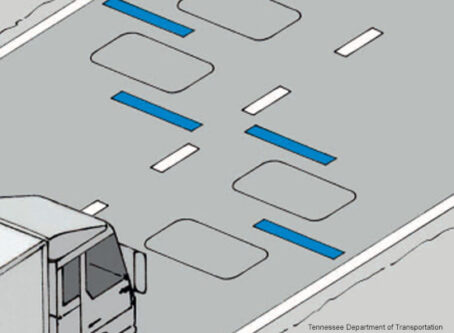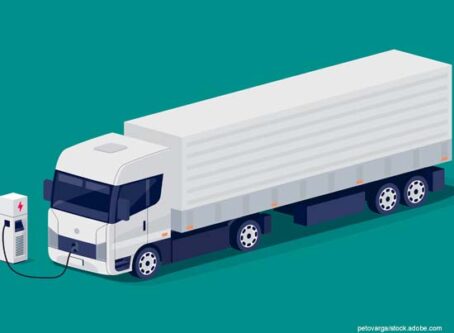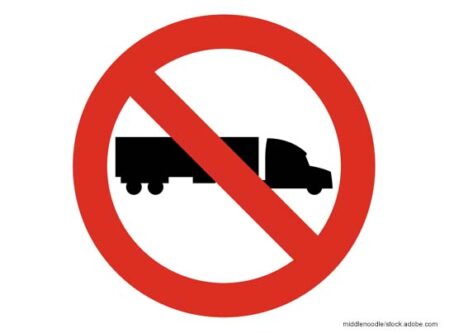B.C.’s higher fines haven’t equaled a reduction in infrastructure crashes
Despite fines that are the highest of their kind across Canada, carriers in British Columbia are striking bridges in 2024 at an alarming rate compared to recent years.
According to the province’s Commercial Vehicle Bridge/Overpass Crash Report, three different carriers were involved in infrastructure crashes between March 22 and March 26. Those carriers include:
- Best Bin Rentals & Disposal Ltd.
- Inline Propagators Ltd.
- Railport Transport Ltd.
As a result of the crashes, all three carriers had their safety certificates suspended pending an investigation by Commercial Vehicle Safety and Enforcement. The B.C. Ministry of Transportation and Infrastructure told Land Line that Best Bin Rentals and Disposal had their suspension lifted on March 28, with “confirmation and implementation of an action plan addressing areas of non-compliance identified during the investigation.”
The ministry says the crashes involving the other two carriers remain under investigation. Until those are completed the companies will be unable to operate in British Columbia.
Including the most recent incidents, the province has seen a total of eight infrastructure crashes through the first three months of 2024 – on pace for a total of 24. If they reach that number it would eclipse the 17 infrastructure crashes reported by the province the year prior, and double the number of instances in 2022.
The uptick in bridge and overpass strikes comes at the worst possible time for truckers. In December, the province announced stiffer penalties for carriers involved in infrastructure crashes – including suspensions of a carrier’ safety certificate, with repeat offenders facing possible cancellation.
“The Province has taken recent action to address the number of infrastructure crashes reported in B.C., with more action anticipated this year,” the ministry told Land Line. “We have brought in new deterrents, including the highest fines in Canada and lengthy suspensions of entire fleets.”
Since those higher fines went into effect in late December, there have been a total of nine infrastructure crashes reported by the B.C. Ministry of Transportation and Infrastructure. One of the nine carriers involved – Chohan Freight Forwarders – had their certificate canceled as a result of the company’s sixth crash in three years.
Following Chohan’s suspension, the company turned to a separate fleet – owned and operated by the son of the company’s owner – to keep freight moving across the province. After seeing the carrier circumvent the suspension, officials in British Columbia revoked the safety certificate of the other company bringing their operation to a halt.
In response, Rob Fleming, B.C. Minister of Transportation and Infrastructure, called upon the federal government to help close the gaps that allowed Chohan – and possibly other carriers in the future – from skirting provincial laws and regulations.
In February, the Council of Ministers Responsible for Transportation and Highway Safety tasked the Canadian Council of Motor Transport Administrators with analyzing “the challenges with the current model for safety certificates … (and examining) potential options to address the issue of carriers with problematic safety records that continue to operate across jurisdictions despite prohibitive measures implemented within a province or territory.”
While the current fines for carriers involved in infrastructure crashes in British Columbia are the highest of their kind across the country, if the provincial government has its way even higher penalties could be on the horizon.
Last month, the B.C. officials announced proposed changes to the Commercial Transport Act that would allow courts to impose fines as high as $100,000 CAD to carriers who strike a bridge or overpass. In addition to the increased financial penalties, carriers could face up to 18 months in prison upon conviction for violations under the proposed changes.
As the provincial government looks to yet again increase penalties for infrastructure crashes, a pair of regulations taking effect later this year are also intended to improve roadway safety.
In April, all commercial vehicles operating in British Columbia that were manufactured after 1994, with a gross vehicle rating of more than 11,793 kilograms (26,000 pounds), will be required to have a speed limiter installed and activated.
Additionally, beginning June 1, the province will require in-cab warning devices to be installed in all commercial vehicles with dump boxes. LL









